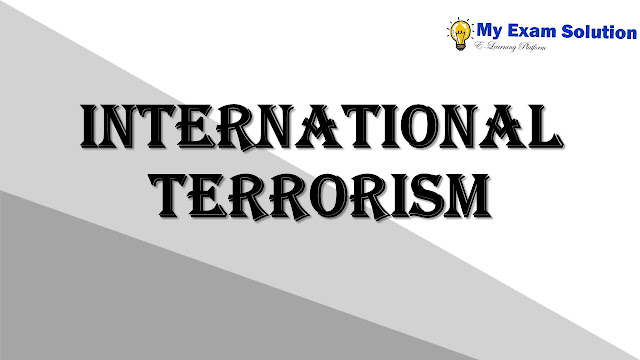International terrorism
Terrorism clearly has a very real and direct impact on human
rights, with devastating consequences for the enjoyment of the right to life,
liberty and physical integrity of victims. In addition to these individual
costs, terrorism can destabilize Governments, undermine civil society,
jeopardize peace and security, and threaten social and economic development.
All of these also have a real impact on the enjoyment of
human rights. Security of the individual is a basic human right and the
protection of individuals is, accordingly, a fundamental obligation of
Government. States therefore have an obligation to ensure the human rights of
their nationals and others by taking positive measures to protect them against
the threat of terrorist acts and bringing the perpetrators of such acts to
justice. In recent years, however, the measures adopted by States to counter
terrorism have themselves often posed serious challenges to human rights and
the rule of law. Some States have engaged in torture and other ill-treatment to
counter terrorism, while the legal and practical safeguards available to
prevent torture, such as regular and independent monitoring of detention
centres, have often been disregarded.
Other States have returned persons suspected of engaging in
terrorist activities to countries where they face a real risk of torture or
other serious human rights abuse, thereby violating the international legal
obligation of non-refoulement. The independence of the judiciary has been
undermined, in some places, while the use of exceptional courts to try civilians
has had an impact on the effectiveness of regular court systems. Repressive
measures have been used to stifle the voices of human rights defenders,
journalists, minorities, indigenous groups and civil society. Resources
normally allocated to social programmes and development assistance have been
diverted to the security sector, affecting the economic, social and cultural
rights of many.
These practices, particularly when taken together, have a
corrosive effect on the rule of law, good governance and human rights. They are
also counterproductive to national and international efforts to combat
terrorism. Respect for human rights and the rule of law must be the bedrock of
the global fight against terrorism. This requires the development of national
counter-terrorism strategies that seek to prevent acts of terrorism, prosecute
those responsible for such criminal acts, and promote and protect human rights
and the rule of law. It implies measures to address the conditions conducive to
the spread of terrorism, including the lack of rule of law and violations of
human rights, ethnic, national and religious discrimination, political
exclusion, and socio-economic marginalization; to foster the active
participation and leadership of civil society; to condemn human rights
violations, prohibit them in national law, promptly investigate and prosecute
them, and prevent them; and to give due attention to the rights of victims of
human rights violations, for instance through restitution and compensation.
This Fact Sheet has been prepared with the aim of
strengthening understanding of the complex and multifaceted relationship
between human rights and terrorism. It identifies some of the critical human
rights issues raised in the context of terrorism and highlights the relevant
human rights principles and standards which must be respected at all times and
in particular in the context of counter-terrorism.







0 comments:
Note: Only a member of this blog may post a comment.